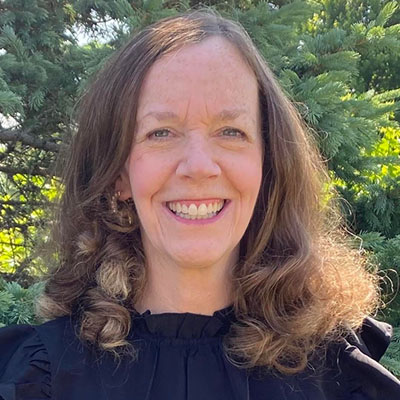
Written By: Julia Brabant
June 2023
Date of Diagnosis: April 2019
Current Status: No Sign of Cancer Since Late 2019
Persistence in Seeking a Diagnosis Paid Off for Connie McCance
Pancreatic cancer symptoms can be vague, delayed and easy to miss, and as a result, many patients don’t know they have it until their cancer has already progressed. Connie McCance’s decision to not ignore even seemingly small symptoms she experienced played a big role in helping doctors identify her cancer – and in giving her options as far as treatment.
Connie, a Wisconsin-based mother of three, had always been active, running up to six miles a day and otherwise following a healthy lifestyle. She’d also had an annual checkup a matter of weeks before she started experiencing mild gastrointestinal distress, and the checkup hadn’t turned up any areas of concern.
That said, when Connie found herself belching for a week straight, she scheduled an appointment with her general practitioner, who thought she had gastroesophageal reflux disease, or GERD. The doctor prescribed Omeprazole, a medication often used to treat the condition, but it didn’t bring Connie any relief.
Because her current doctor was out of town, she scheduled an appointment with a different doctor at the same practice to discuss her ongoing – and worsening – symptoms. The new doctor decided to test her for H. Pylori, a type of bacteria that can cause infections within the stomach and small intestine. Test results were negative, but by then, Connie had begun experiencing other health issues.
“I’d drop my kids at school and then feel so terrible and exhausted I’d climb into bed,” she said. “The next thing I knew, I was waking up and it was time to pick them up.”
Her intuition told her that whatever she was dealing with was more serious than GERD or H. Pylori, so she sought a third medical opinion, booking an appointment at her local urgent care.
The urgent care physician’s opinion concurred with that of the general physician she’d seen earlier. Days later, Connie contacted her general physician again and requested additional tests, as she still felt she had something more serious, like cancer. From there, doctors administered an ultrasound and a CT scan, revealing a mass on Connie’s pancreas. They determined Connie’s cancer was likely Stage 2 or Stage 3 and recommended she see Dr. Douglas B. Evans, a surgical oncologist at the nearby Froedtert & the Medical College of Wisconsin.
Connie began chemo using FOLFIRINOX, but it failed to produce the results they’d hoped to see, prompting a switch to a combination of Gemcitabine and Abraxane. The new chemo regimen worked, and Connie underwent four months of chemotherapy and then another six weeks of a combined chemotherapy/ radiation regimen.
When treatment concluded, Dr. Evans determined it had worked well enough for Connie to have surgery.
On Nov.ember 4, 2019, she had the Whipple procedure, an intensive, multi-hour surgery used to treat some pancreatic cancer patients. She spent the next 17 days recovering in the hospital before returning home, where she set to work trying to make up for the months of weight loss and nausea that had left her well below her target weight.
“I’m a pancreatic cancer patient – life every day is different,” Connie said, of adjusting to life and the new dietary changes that often come with having a Whipple surgery. “I’d say my body runs at about 75%, 80%.”
Connie takes several prescription medications and tinctures to help with digestion, including CREON, Lomotil and tincture of opium. With their help, she’s managed to move much closer to her target weight. She also started looking for possible genetic or lifestyle factors that might have contributed to her cancer risk in the days since her diagnosis but has yet to find any clear links.
Connie also urges other people facing pancreatic cancer diagnoses, or any cancer diagnosis, to have someone act as an advocate on their behalf. While cancer advocates wear many hats, the role of the advocate often includes attending medical appointments, taking thorough notes during those appointments, and helping ensure a patient has the knowledge needed to make informed decisions and the opportunity to voice his or her preferences.
“Don’t go alone – take someone with you,” Connie said. “Have that person write everything down, and then reread it when you get home. It sounds really simple, but having an advocate there observing and taking everything down was one of the biggest helps I had along the way.”
She also encourages people with cancer to make a point to become more in-tune with their bodies so that it’s easier to identify any changes that may warrant a visit to the doctor.
Connie also urges other people with cancer to prioritize themselves when it comes to their care and lifestyles.
“Don’t feel bad if you have to be selfish. When you have cancer, your job is your health,” she said. “Tackle one day and one task at a time, and try not to feel bad or guilty if you have to miss something.”
For the time being, Connie will continue to meet with Dr. Evans every six months to monitor her condition and have bloodwork and scans.
Connie has shown no sign of cancer since November 2019.




Dr.Evans and his team, including DrColin Mooney in West Bend, Wi saved my life.I’m six years out and realize how fortunate I was to still be alive.